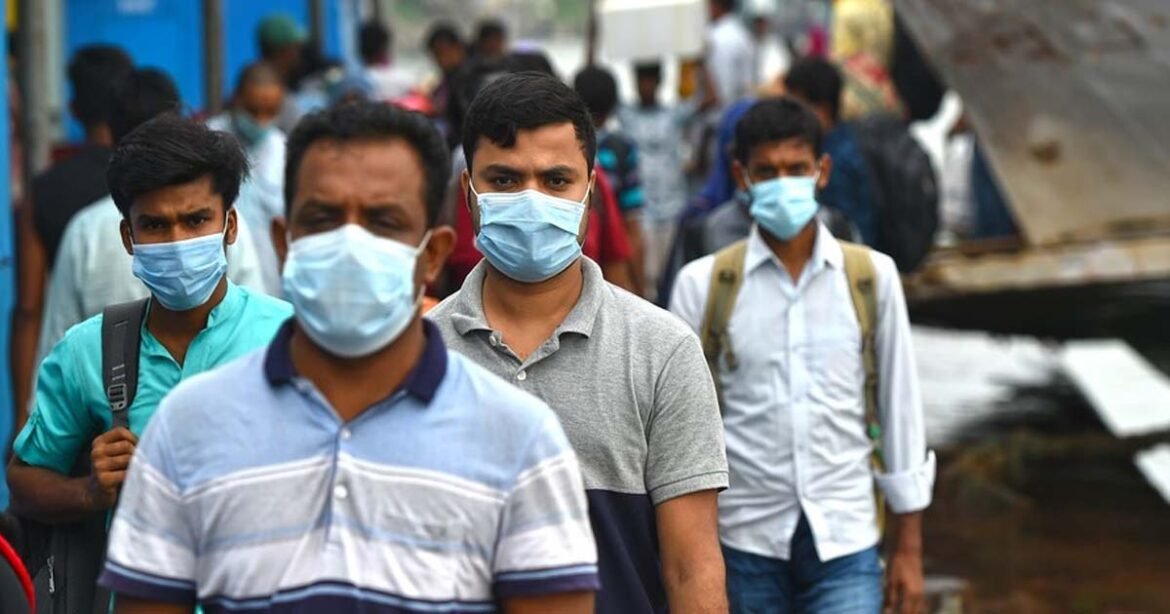The new Omicron sub-variant of coronavirus or Covid-19, BF. 7, has been detected in Bangladesh. Institute of Epidemiology, Disease Control and Research (IEDCR) confirmed the information on January 1. After the detection of Omicron BF.7, a highly contagious new type of coronavirus in the country, experts have advised increasing surveillance in all types of ports including air and land ports.
The genome sequence report of one of the four Chinese nationals infected with Covid-19 who recently arrived in Bangladesh from China revealed this new type of Covid virus. Experts recommend special emphasis should be placed on infection prevention in hospitals to deal with this highly infectious variant.
How was it identified?
On December 26, when four passengers from China were tested for Covid-19 antigen at Hazrat Shahjalal International Airport, their report came positive. Later they were sent to Mohakhali DNCC Hospital for isolation. However, four Chinese nationals who tested positive for Covid are now doing well.
YOU CAN ALSO READ: CONTINUING AQI TOP POSITION, REDUCING 7-YR LIFE EXPECTANCY
The director of the disease control department of the health department told a daily news media that they will actually be released from the hospital after they get negative in the Covid test again. Earlier, IEDCR director Dr. Tahmina Shirin confirmed the detection of BF.7 type in the genome sequence report of the Chinese citizens last Sunday.
Nazmul Islam.
The precautions experts are talking about
To prevent the infection of Omicron type BF.7 in the country, it is necessary to emphasise infection prevention or infection prevention of hospitals, said the advisor of IEDCR Dr Mushtaq Hossain. He told the media, “It is necessary to emphasise and ensure the methods of infection prevention such as; cleanliness, cleanliness of floor-washrooms, wearing of masks, hand washing with soap in hospitals, vaccine centres and Covid-testing centres. Because hospitals spread more disease.” He said, “It is true that patients will come through the border, but the disease will spread from the hospital.
We are serious about the border, but less attention is being paid to preventing the spread of infection in hospitals.” “Each hospital has an infection prevention committee headed by a director to ensure that the committee reviews infection prevention on a daily basis,” he added. He also mentioned that there is a risk of infection increasing in the next February. He further said, “Omicron has many variants; what survived is now spreading. So be careful. Those who have not yet completed the vaccine dose should receive the vaccine; besides, the habit of wearing a mask should be re-introduced.”
Like other countries, Bangladesh is ready to prevent the infection of Bf.7, said the director of the health directorate, Professor Nazmul Islam. He said, “We have alerted the ports. Antigen tests are being conducted on the suspected patients. Now that a patient with BF-7 has been found, extra precautions will be taken there.
The patients will come through the ports, so we have asked to increase surveillance at all the ports. However, hospitals should also be prepared.” Besides, he urged those who have not yet received the second and third doses of vaccination to get vaccinated soon.
BF. 7 is highly contagious
BF.7 is a variant of Omicron’s BA.5. This variant with short incubation period is highly contagious. Experts say this strain, which has a high ability to cause re-infection, can also infect people who have been vaccinated. The new strain is at least 4.4 times more resistant to neutralisation than the strain first detected in Wuhan, China.
That is, the antibodies from vaccination are not effective enough against this type. A study published in the journal Cell Host and Microbe says so. Symptoms such as fever, sore throat, runny nose and cough along with respiratory distress can occur when one gets infected with this new strain.
Apart from this, there may be various stomach-related symptoms including diarrhoea, vomiting. The new strain may not cause any serious physical complications, but researchers fear it could spread quickly because it is highly contagious. Omicron BF.7 has already started growing in China. And, it has also found presence in USA, Denmark, Germany, France and India.


